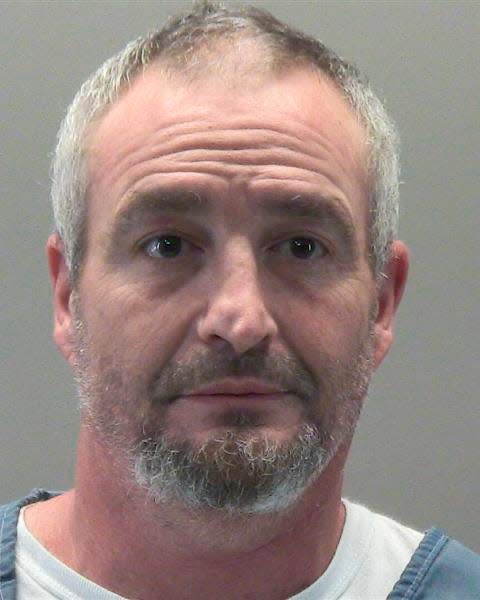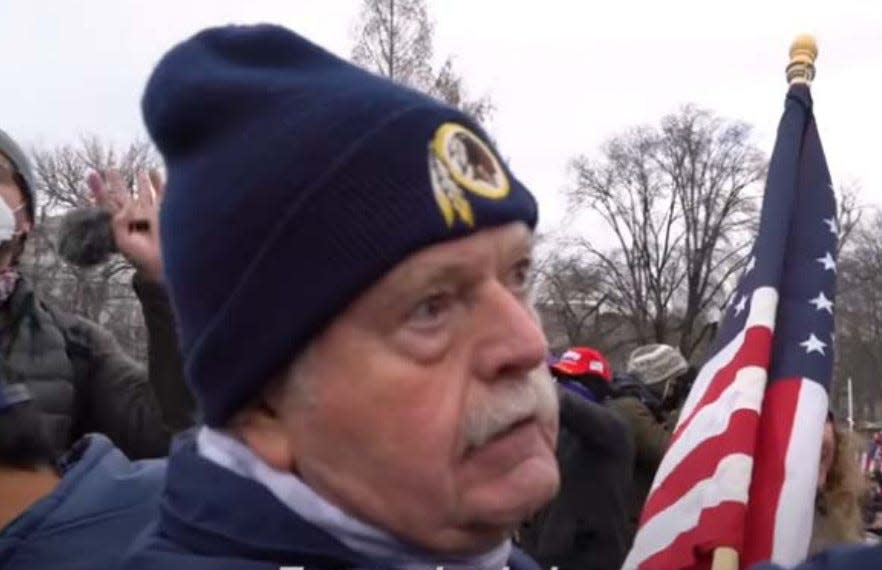Oath Keepers had ‘corrupt’ intent when they stormed Capitol, DOJ says as defendants seek case dismissal
WASHINGTON – Members of the Oath Keepers, a far-right paramilitary group, had a "corrupt" intent when they unlawfully forced their way into the Capitol on Jan. 6, causing lawmakers to flee, the Justice Department argued Wednesday as the defendants sought to dismiss the case.
"The object here is to scare Congress into halting the proceeding. The defendants intend to act corruptly by their show of force," Assistant U.S. Attorney Jeffrey Nestler argued during a 2 1/2-hour hearing in federal court in Washington, D.C., where 15 members of the Oath Keepers are asking U.S. District Judge Amit Mehta to dismiss the charges against them.
Members of the loosely organized anti-government group are facing several charges for their alleged roles in the violent attack on the Capitol on Jan. 6, when supporters of former President Donald Trump forced their way into the building as lawmakers were counting state-certified Electoral College votes. Charges include conspiracy, obstruction of an official proceeding and entering a restricted building.

Nestler also said that unlike other situations in which members of the public disrupt official proceedings, such as when someone who's lawfully attending a public confirmation hearing of a Supreme Court justice yells during the proceeding, the defendants in the Capitol riot case went inside a building they're not allowed to be in.
More: Local, federal police brace for upcoming rally supporting Jan. 6 Capitol riot defendants
More: Capitol riot spurred conspiracy charge against 31 suspects, but how hard is it to prove?
"The defendants here are corrupt because they intended to intimidated Congress … into stopping what Congress was doing," Nestler said.
Carmen Hernandez, attorney or Donovan Crowl, who's facing the more serious conspiracy charges, disagreed, saying prosecutors' use of the obstruction statute is too vague and, therefore, unconstitutional. The statute makes it illegal to "corruptly" obstruct an official proceeding, but Hernandez said there is nothing corrupt about what Crowl is accused of doing.

For the average person, corrupt implies paying off somebody for personal gain, which Crowl is not accused of doing, Hernandez said.
"The statute cannot be read as broadly as the government wanted … They're not allowed to twist these words into a fashion that just eliminates any meaning Congress may have intended," Hernandez said.
David Fischer, attorney for Thomas Caldwell, who's also facing a conspiracy charge, took issue with what qualifies as an "official proceeding." Fischer said that an Electoral College vote certification is not considered an official proceeding, which he argued is a court-like or quasi-judicial activity held in the pursuit of justice.

"This is an obstruction of justice statute, and there's absolutely nothing about an Electoral College certification that an average person would believe is justice-related," Fischer said.
But Mehta seemed skeptical that Congress contemplated such a narrow interpretation.
"I'm not sure anything other than impeachment would qualify under your narrow definition," Mehta said.
Caldwell, unlike others, did not ultimately enter the Capitol building but is accused of planning the surge.
More: Fourth suspected Oath Keeper pleads guilty to in Capitol riot conspiracy, obstruction
Mehta also unloaded on Fischer over papers he filed asking for the case to be moved out of Washington, D.C. Fischer argued that his client and the other defendants are not likely to find a fair jury in the district, where he said anti-Trump residents despise the values of traditional America.
"Writing a brief that looks like it's been ripped out of a blog isn't going to do it," Mehta said, adding that painting a city's residents with a broad brush without statistical evidence such polling data "is not the way to do it."
The Justice Department has charged more than 500 people for their alleged roles in the attack on the Capitol, several of whom, including at least four members and associates of the Oath Keepers, have pleaded guilty to conspiracy and obstruction charges.
This article originally appeared on USA TODAY: Capitol riot: Oath Keepers ask for dismissal of charges

